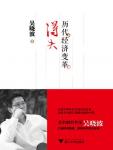Chapter 1 Rise or crash, that is the question
The debate over China's economic transformation has always existed, but never has it been as polarized as it is now.
According to calculations in the book "Megachange: The World in 2050" published by the British "The Economist" magazine, the Chinese economy will surpass the United States around 2030 and become the world's largest economy. By 2010, China's economic aggregate will account for 20% of the world's total. The Economist's data is basically consistent with the calculations of the Chinese economist Justin Yifu Lin.On this basis, Lawrence Summers, who once served as Secretary of the U.S. Treasury and President of Harvard University, then gave a historic long-term conclusion. In his view, the history books 300 years later will regard the end of the Cold War as the first The third important event, the relationship between the Islamic world and the Western world as the second important event, and the first important event is the rise of developing countries, especially the rise of China and India, and the relationship between these countries and developed countries and interact.
For Westerners, facing the fact of China's economic rise, the most difficult thing is not prediction and calculation, but how to explain it.
In January 2013, Ronald Coase, the 103-year-old Nobel laureate in economics, published the book Transforming China: China's Road to a Market Economy.In the past few years, the world's oldest economist has developed a keen interest in the Chinese economy - although he has never set foot on the soil of this strange country, in 2008, the 30th anniversary of China's reform and opening up, he I funded the China Economic Transformation Symposium in Chicago, and then devoted myself to the completion of this book.In this book, Coase gives three basic conclusions about China's economic transformation: one is "the greatest", he agrees with economist Zhang Wuchang's point of view, and believes that China's economic transformation that began in 1978 is "the greatest in history". The greatest economic reform plan"; the second is "unplanned", "the series of events leading China to a modern market economy is not a purposeful man-made plan, and the results are completely unexpected"; the third is "unexpectedness", Coase will China's The rise is seen as an excellent example of Hayek's theory of "unintended consequences of human action".His three basic conclusions indicate that the rise of China's economy cannot be fully explained within the existing framework of institutional economics.
Compared with the above-mentioned voices, other opposing opinions seem to be more acute.
In early 2012, Paul Krugman, who is also a Nobel laureate in economics and is widely known for accurately predicting the 1997 Asian financial crisis, published a column in the New York Times, arguing that the Chinese economy was collapsing.His main argument is that Chinese residents’ consumption expenditure accounts for only 35% of the gross national product (GNP), and they rely more on the trade surplus to maintain the normal development of industry. 50% of the total, and a large part of it is caused by the expanding real estate bubble, which is very similar to the situation before the financial crisis in the United States.He joked at the end of the article: "The world economy has already suffered from the European financial crisis, and we really don't need a new source of crisis." The article "Is Coming to Collapse" believes that China's system, law, economic structure, population structure and other issues will become the reasons for the impending collapse.
Among Chinese economists, long-term pessimism is quite popular, and many liberal scholars deny the existence of the Chinese model.Professor Huang Yasheng of Yale University wrote many times that "China's economic development model is not unique." Strange. Neither China’s successful experience nor its developmental difficulties are unique to China, but shadows can be found in other countries in the world.”
The polarization of the economic circles not only did not dispel the charm of China's economic rise, but made it even more fascinating.When neither theory nor data can give a clear judgment, I think of Joseph Schumpeter's famous saying: "One can study the economy in three ways: through theory, through statistics and through history." So, back to "The Fundamentals of Chinese History" may be a good adventure to explore the gains and losses from the economic reforms of the past dynasties, and to find the laws and logic. -- This is the starting point for the creation of this book.

